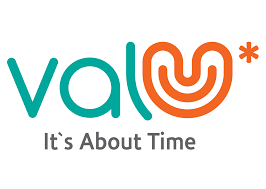ValU made the announcement on Wednesday that it has acquired a minority share in the local fintech company Kiwe. Kiwe is the first social payment software that makes it possible for unbanked individuals in Egypt to get bank accounts.
At the moment, EFG Hermes Finance, EFG EV Fintech, dfin Holding, and Marakez are all owners of the company.
Kiwe’s financial technology solutions appeal to young people because the firm capitalizes on the difficulties that young people have daily with regard to payment and social participation. These solutions make it simple for young people to gather, transfer, and spend money electronically.
It also gives small businesses and startups an easy-to-use, cost-effective digital payment platform. This is done to help young entrepreneurs with their day-to-day financial problems.
Read also: Jumia Shares Rise After A Tough First Quarter
This acquisition enables ValU to become a financial powerhouse
By merging the service offerings of Kiwe with its BNPL plans, valU is fulfilling its objective of becoming a holistic financial powerhouse. This allows valU to provide innovative and easy solutions to all aspects of people’s day-to-day lives, which is valU’s mission.
The investment also goes well with valU’s recent strategic purchase of Paynas, a full-fledged employee management and benefits company that offers micro, small, and medium-sized businesses (MSMEs) financial products like payroll cards and digital salary advances.
valU’s purpose is to drive the rise of cashless transactions, which has a beneficial influence on financial inclusion in Egypt. The purchase of minority ownership in Kiwe builds on VALU’s aim to do so. It is also in line with valU’s mission to widen its client base of young individuals and small businesses, and it will support Kiwe’s expansion by tapping into valU’s vast network of vendors across a variety of industries. valU’s mission is to broaden its client base of young individuals and small businesses.
This investment builds on an existing cooperation between Kiwe and valU, which has seen them effectively combine their efforts across a number of significant events such as Le Marche and Shababco. Because of this relationship, it is also easier for new exhibitors to take part who didn’t have access to payment methods before to.
“This strategic investment in Kiwe comes as a natural step to further bolster our portfolio of financial services by extending more innovative solutions to MSMEs and young people,” said Habiba Naguib, Head of Strategy and Market Expansion at valU. “This strategic investment in Kiwe comes as a natural step to further bolster our portfolio of financial services.” By focusing on these groups, we can reach a larger audience and make life easier for millions of clients by making it easier to manage one’s finances, promoting more financial inclusion, and reducing the stress that comes with it.
“Kiwe will substantially benefit from using our extensive and ever-growing network of partners due to its one-of-a-kind product as well as its streamlined and engaging user experience. As a result, this is an investment that has the potential for development for everyone. People who rely on our services every day to make their lives better, grow their businesses, and positively impact their communities are the people we believe we can create long-term value for. We think we can come up with more creative ways to handle money that will open many doors for us and our users.
Kiwe plans to raise more funds in the future
With this deal, Kiwe made its first investment of the year. However, the company still wants to raise money for a seed round over the next few months.
Omar Kamel, one of the co-founders of Kiwe, commented on the matter as follows: “For us at Kiwe, valU’s investment is proof positive that we’re forging ahead in the right direction, and it signals confidence in our brand that offers unique services that are in high demand.”
“Having a significant financial company such as valU aboard functions as a vital step ahead in our growth goal. This allows us to benefit substantially from their success and gives us access to their extensive network of suppliers. This is a key step forward in our development strategy. We are sure that by aligning our businesses behind a shared vision that aims to improve financial literacy and provide easy access to a variety of financial solutions, we will be able to make a big difference in achieving our long-term social and economic goals.
















